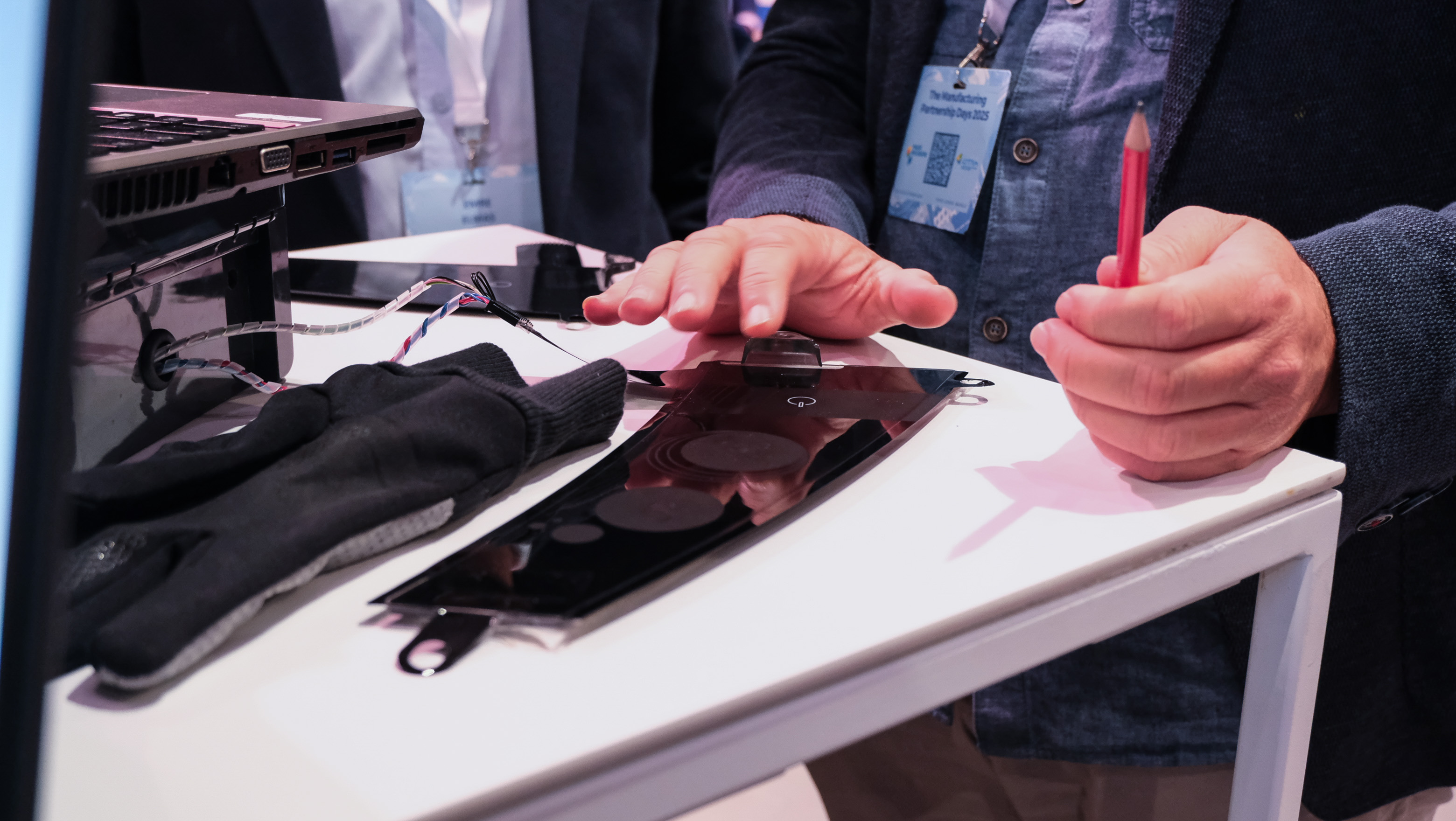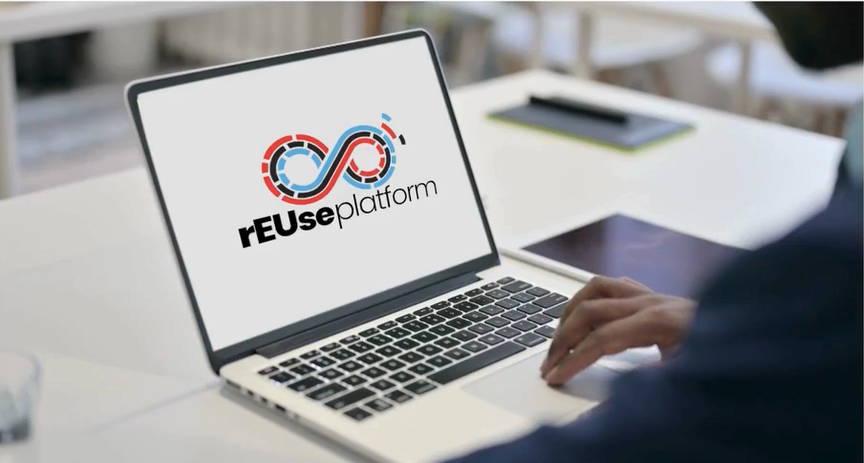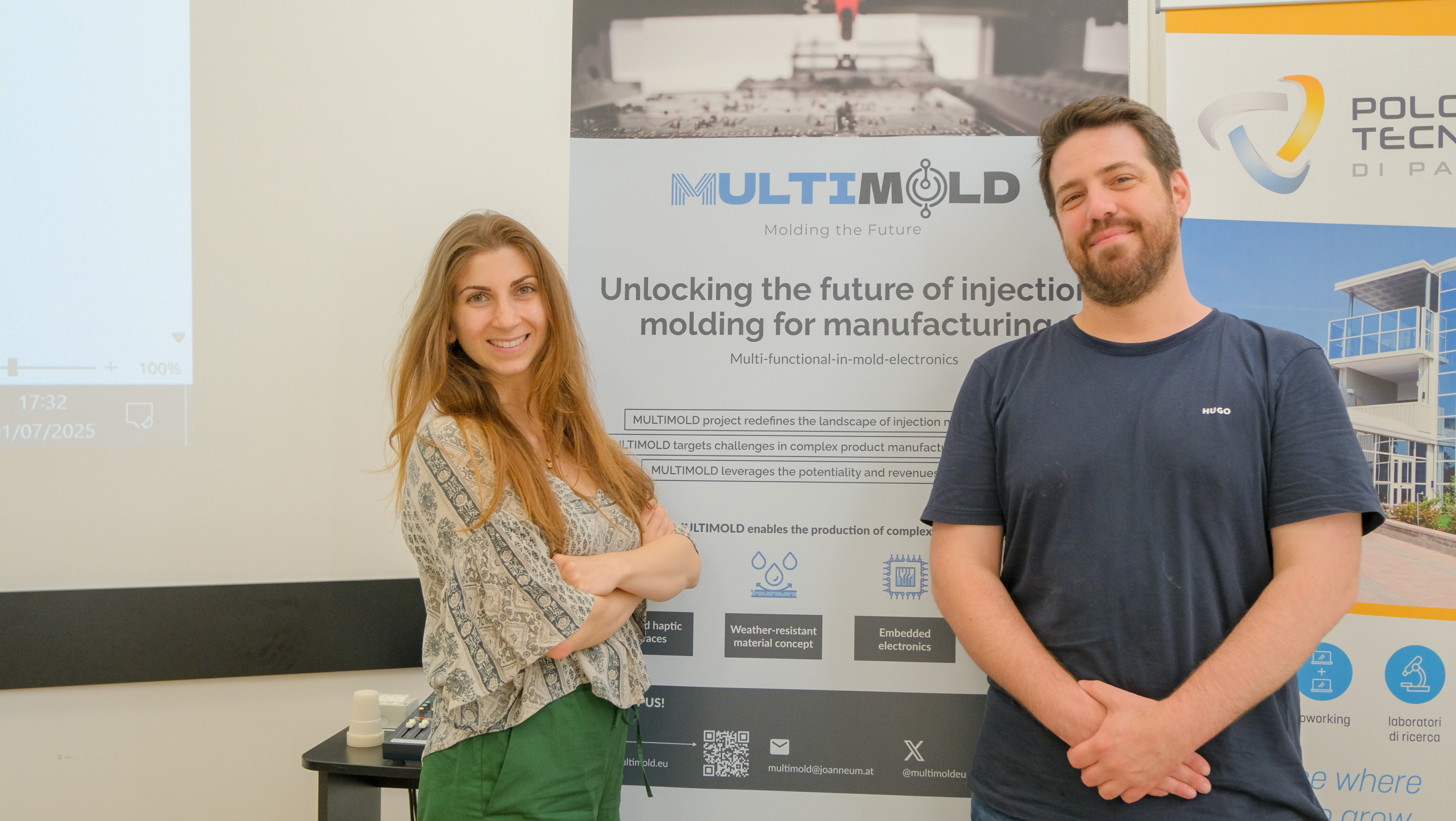Almost invisible and undervalued by many, electronic packaging is at the heart of every electronic application. Our technologies connect the individual components, protect components and devices from vibration and moisture, and reliably dissipate heat. Fraunhofer IZM thus ensures that electronic devices continue to function reliably in even the harshest conditions. Modern packaging technologies make developing smaller and smaller products possible. We process ICs thinner than a sheet of paper. The institute, founded in 1993, has a staff of more than 400 and disposes of a lab area of over 8,000 sqm. About 80 percent of our turnover is earned through contract research.
Fraunhofer IZM for MULTIMOLD
At Fraunhofer IZM, our focus in the MULTIMOLD project is on advancing sustainability in electronics production. We conduct comprehensive life cycle assessments to evaluate the environmental impacts of materials and optimize resource utilization throughout the manufacturing process. We also provide expert consultation in material selection to ensure that the new molding methods developed under our guidance are not only high-performing but also more environmentally friendly.
We emphasize enhancing the overall sustainability of the project by supporting our partners in developing innovative techniques for both manufacturing and recyclability. Our ongoing efforts are dedicated to creating sustainable production methods that meet ecological efficiency requirements without compromising the performance of electronic products.

Sarah-Jane Baur joined the Fraunhofer Institute for Reliability and Microintegration (IZM) in December 2022 as a research associate, after holding a position as a student assistant at IZM since 2019. She is part of the Life-Cycle Modeling group and is primarily involved in the conducting of life cycle assessments for ICT products and manufacturing processes. She studied electrical engineering at the Technical University of Berlin. Her master's thesis dealt with the feasibility and opportunities of standardizing lithium batteries for smartphones.

Marina Proske studied environmental engineering at the Technical University of Berlin and completed her doctorate on the subject of "Ecodesign concepts and environmental assessments taking into account product obsolescence". She has been working at Fraunhofer IZM since 2011, where she has headed the "Life Cycle Modeling" group since 2023 and deals with the topics of ecodesign and life cycle assessments. From 2016 to 2022 she was a member of the research group "OHA -Obsolescence as a Challenge for Sustainability". She works in national and European research projects on the environmental impact of electronics, conducts life cycle assessments of ICT devices for industrial customers and regularly reviews LCAs.


.jpg)








.jpg)







